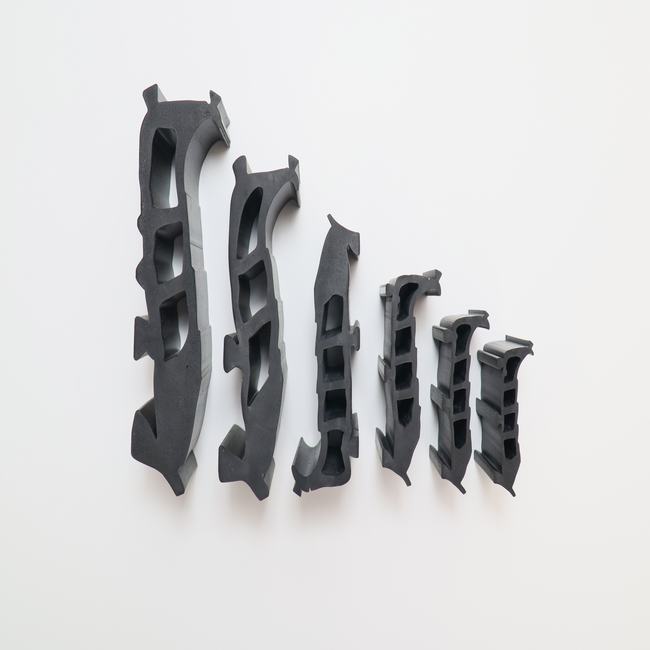Concrete pipe seals, also known as concrete pipe gaskets or concrete pipe joint seals, are critical components used to create watertight and secure connections between concrete pipes in various construction and infrastructure applications. These seals are designed to prevent leaks, maintain the structural integrity of pipelines, and ensure the efficient flow of fluids or materials. Here is a detailed description of concrete pipe seals:
1. Material Composition:
- Elastomeric Materials: Concrete pipe seals are typically made from elastomeric materials, such as rubber or synthetic rubber compounds. These materials provide flexibility, resilience, and durability to withstand compression and expansion forces.
2. Functionality:
- Sealing: The primary function of concrete pipe seals is to create a secure and watertight seal between adjacent concrete pipes or pipe sections. This sealing action prevents the escape of fluids, such as water, sewage, or industrial materials, and ensures that the pipeline functions as intended.
3. Types of Concrete Pipe Seals:
- Single Gaskets: Single gaskets are used to seal the joint between two concrete pipes. They are typically circular in shape and fit snugly inside the pipe socket.
- Double Gaskets: Double gaskets consist of two separate seals stacked on top of each other, providing enhanced sealing performance and added security.
- Manhole Seals: These specialized seals are used in manhole structures to create a watertight seal between the manhole frame and the concrete chamber.
- End Seals: End seals are designed to seal the ends of concrete pipes or pipe sections, ensuring that fluids cannot escape through the ends of the pipeline.
- Lubricated or Mastic Seals: Some concrete pipe seals may be coated with lubricant or mastic to facilitate installation and create a secure seal.
4. Features and Characteristics:
- Chemical Resistance: Concrete pipe seals are often resistant to chemicals, making them suitable for use in wastewater, industrial, and sewage applications.
- Corrosion Resistance: Elastomeric materials used in these seals are inherently resistant to corrosion, ensuring a long service life.
- Temperature Tolerance: They can withstand a range of temperatures, making them suitable for both hot and cold fluid transport.
- Compression and Expansion: Concrete pipe seals are designed to accommodate the compression and expansion forces that occur due to soil settlement, temperature fluctuations, and traffic loads.
- Durability: They are engineered to withstand the rigors of underground and above-ground applications, providing long-lasting performance.
- Easy Installation: Concrete pipe seals are typically easy to install, and they are often secured in place using pipe lubricant or other sealing compounds.
5. Applications:
- Sewer Systems: Concrete pipe seals are commonly used in sewage and wastewater systems to prevent leaks and maintain the integrity of the pipelines.
- Stormwater Drainage: They are utilized in stormwater drainage systems to manage the flow of rainwater and prevent flooding.
- Culverts: Concrete pipe seals ensure the watertight and secure connection of concrete culvert pipes used in transportation infrastructure.
- Utility Tunnels: In utility tunnels and conduits, concrete pipe seals help maintain the integrity of utility pipelines.
- Industrial Pipelines: They are employed in industrial settings for the transport of various materials, including chemicals and slurries.
In summary, concrete pipe seals are vital components in various construction and infrastructure applications, ensuring the proper functioning of pipelines while preventing leaks and maintaining environmental and structural integrity. Proper selection, installation, and maintenance of concrete pipe seals are essential to guarantee their long-term effectiveness in pipeline systems.

